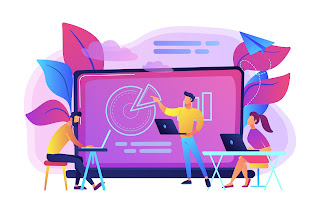Exploring Modern Teaching Methods: Revolutionizing Education for the 21st Century
Introduction:
Education has always been a vital pillar of society, shaping the minds of generations and preparing them for the challenges and opportunities of the future. As the world continues to evolve rapidly, so must our approaches to teaching and learning. Modern teaching methods have emerged as a response to the changing needs of learners in the 21st century, harnessing technology and innovative pedagogical practices to enhance the educational experience. In this article, we will delve into some of the key modern teaching methods that are revolutionizing education today.
Blended Learning:
Blended learning combines traditional face-to-face instruction with online learning components. This approach acknowledges the power of technology in education while preserving the importance of human interaction. By utilizing a mix of in-person classroom activities and digital resources, educators can personalize learning experiences, cater to individual student needs, and provide flexibility in terms of time and location. Blended learning also encourages collaborative learning, as students can engage in online discussions and group projects, fostering a sense of community and teamwork.
Flipped Classroom:
The flipped classroom model flips the traditional sequence of learning activities. Students are introduced to new concepts and content outside the classroom, typically through pre-recorded video lectures or online readings. Classroom time is then dedicated to active learning, such as discussions, problem-solving, and hands-on activities, facilitated by the teacher. This approach promotes student engagement, critical thinking, and a deeper understanding of the subject matter as students have the opportunity to apply their knowledge in a supportive environment.
Project-Based Learning:
Project-based learning (PBL) shifts the focus from teacher-centered instruction to student-centered exploration. In this approach, students work on complex, real-world projects that require critical thinking, collaboration, and problem-solving skills. PBL encourages inquiry, creativity, and the application of knowledge across disciplines. By engaging in projects, students develop a deeper understanding of the subject matter, gain practical skills, and learn to work effectively in teams. This method also nurtures students' intrinsic motivation and fosters a sense of ownership and responsibility for their learning.
Gamification:
Gamification involves integrating elements of game design and mechanics into the learning process to enhance student engagement and motivation. By incorporating game-like elements such as challenges, rewards, levels, and leaderboards, educators can create a more interactive and immersive learning experience. Gamification promotes active participation, fosters healthy competition, and provides immediate feedback, which encourages students to persist in their learning journey. It also helps develop problem-solving skills, critical thinking, and resilience.
Personalized Learning:
Personalized learning tailors instruction to the individual needs, interests, and learning styles of each student. Technology plays a crucial role in enabling personalized learning as it allows for adaptive learning platforms, intelligent tutoring systems, and data-driven insights. Through diagnostic assessments, learning analytics, and adaptive content, educators can create customized learning pathways for students. Personalized learning empowers students to take ownership of their education, promotes self-directed learning, and ensures that they progress at their own pace.
Conclusion:
As we navigate the complexities of the 21st century, modern teaching methods offer innovative approaches to education that cater to the diverse needs and aspirations of today's learners. Blended learning, flipped classrooms, project-based learning, gamification, and personalized learning are just a few examples of the transformative practices shaping the future of education. By embracing these methods, educators can foster creativity, critical thinking, collaboration, and adaptability—the essential skills required for success in the modern world. As technology continues to evolve, it will undoubtedly play an increasingly significant role in shaping the future of education, opening new possibilities for engaging, empowering, and inspiring learners worldwide.





Post a Comment